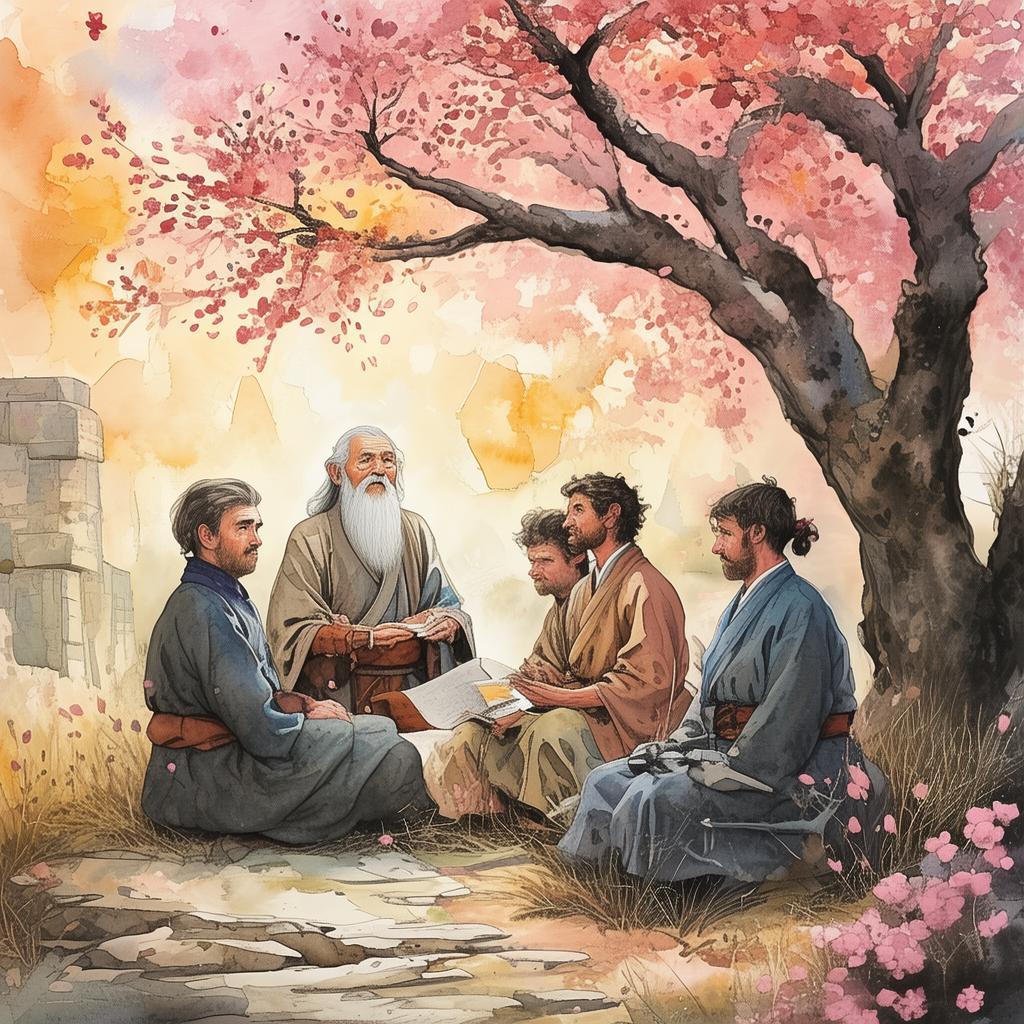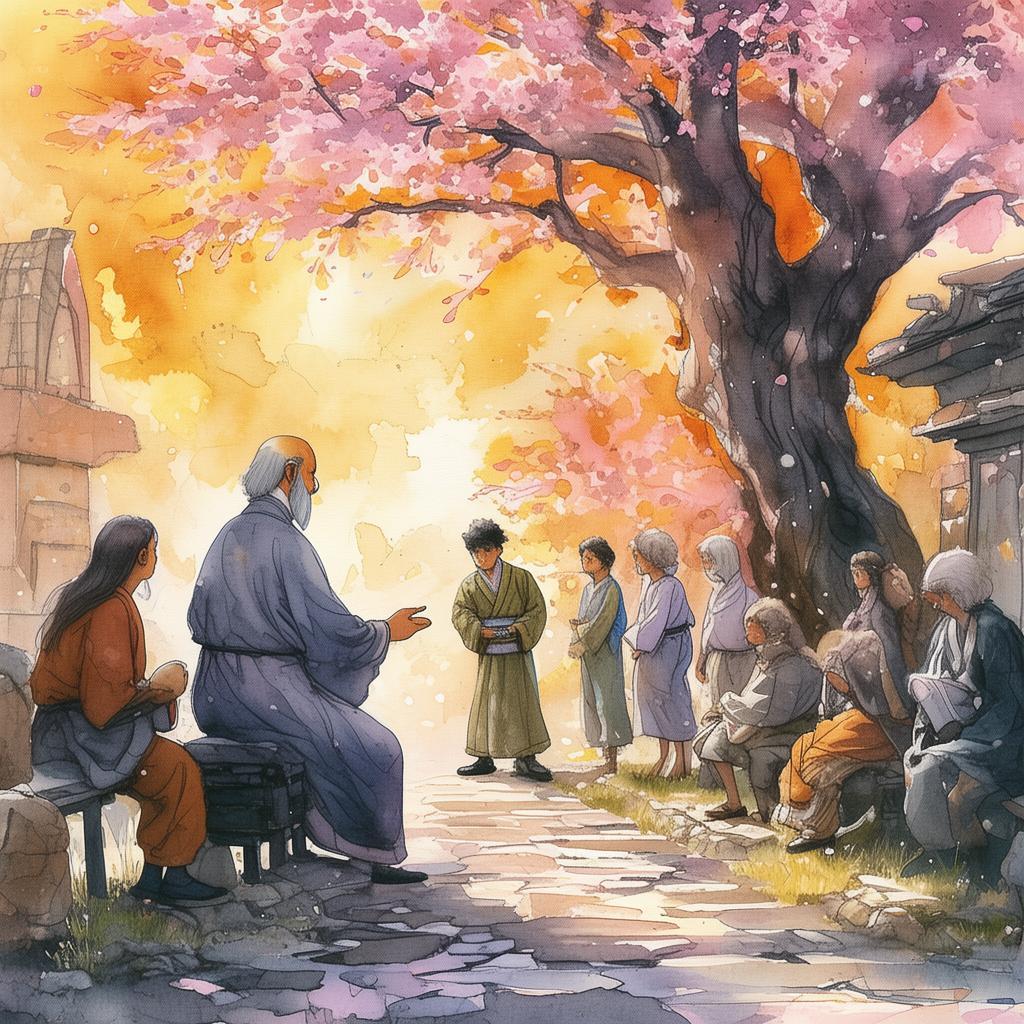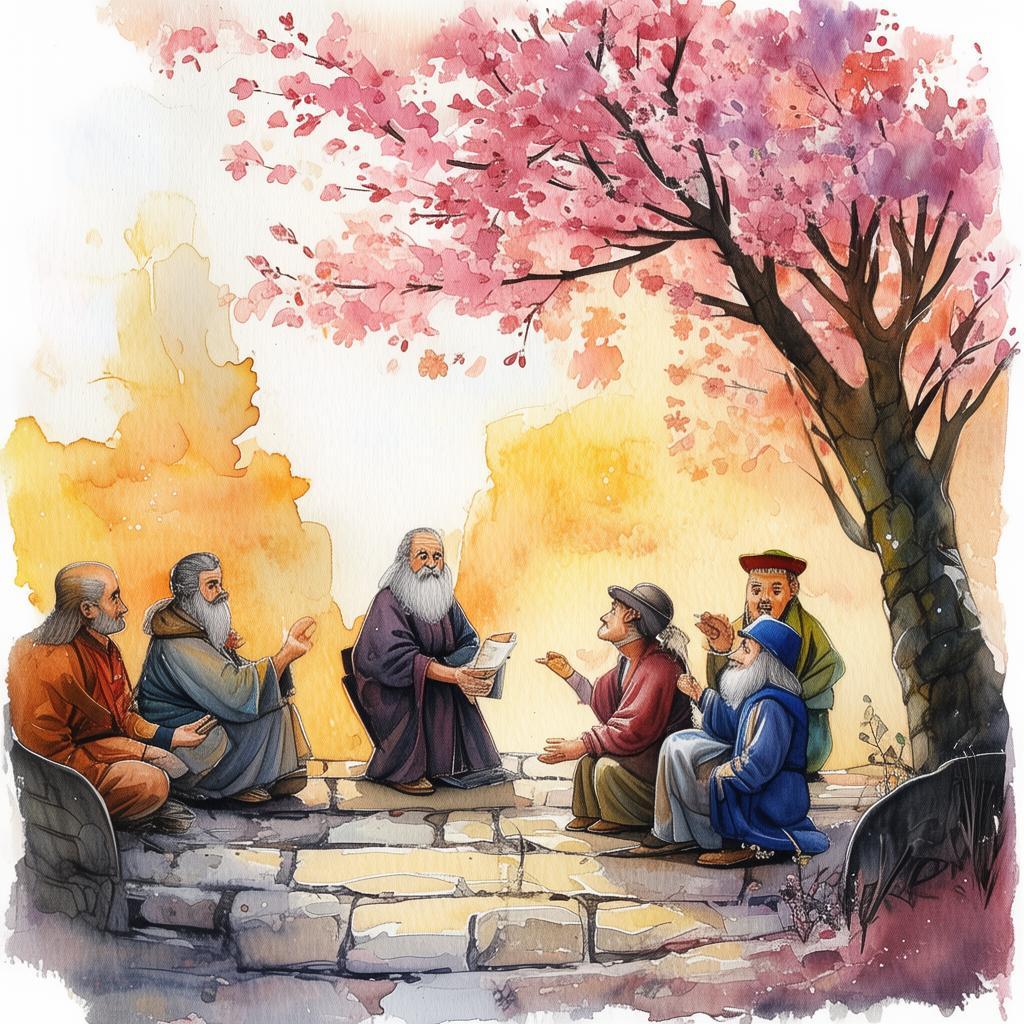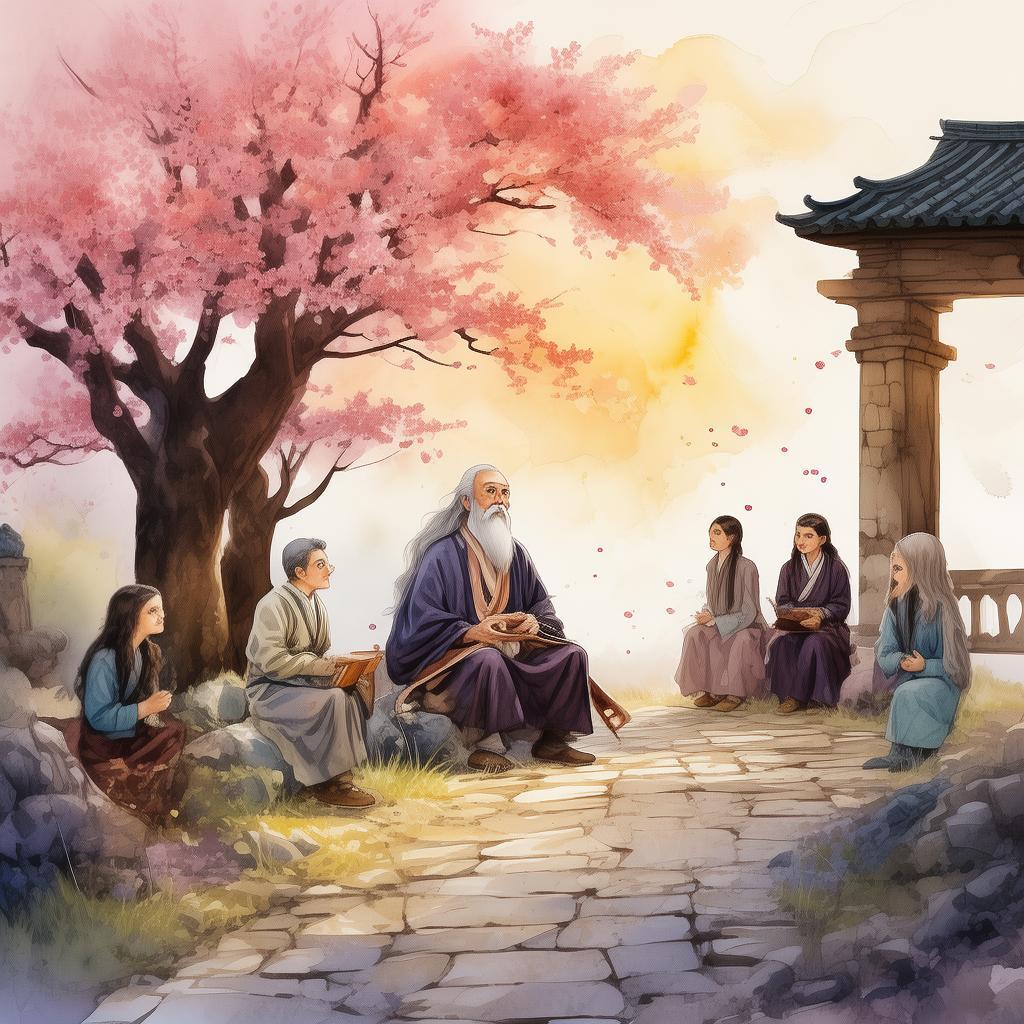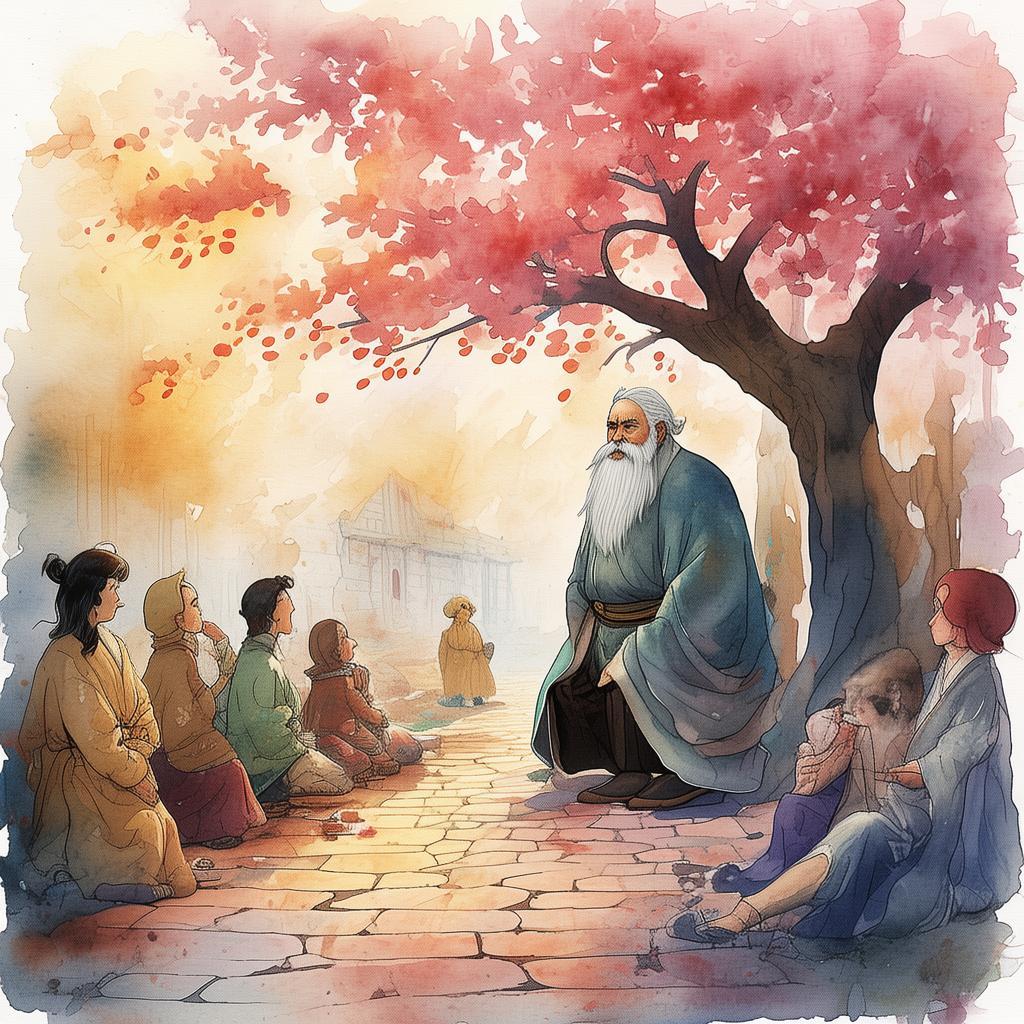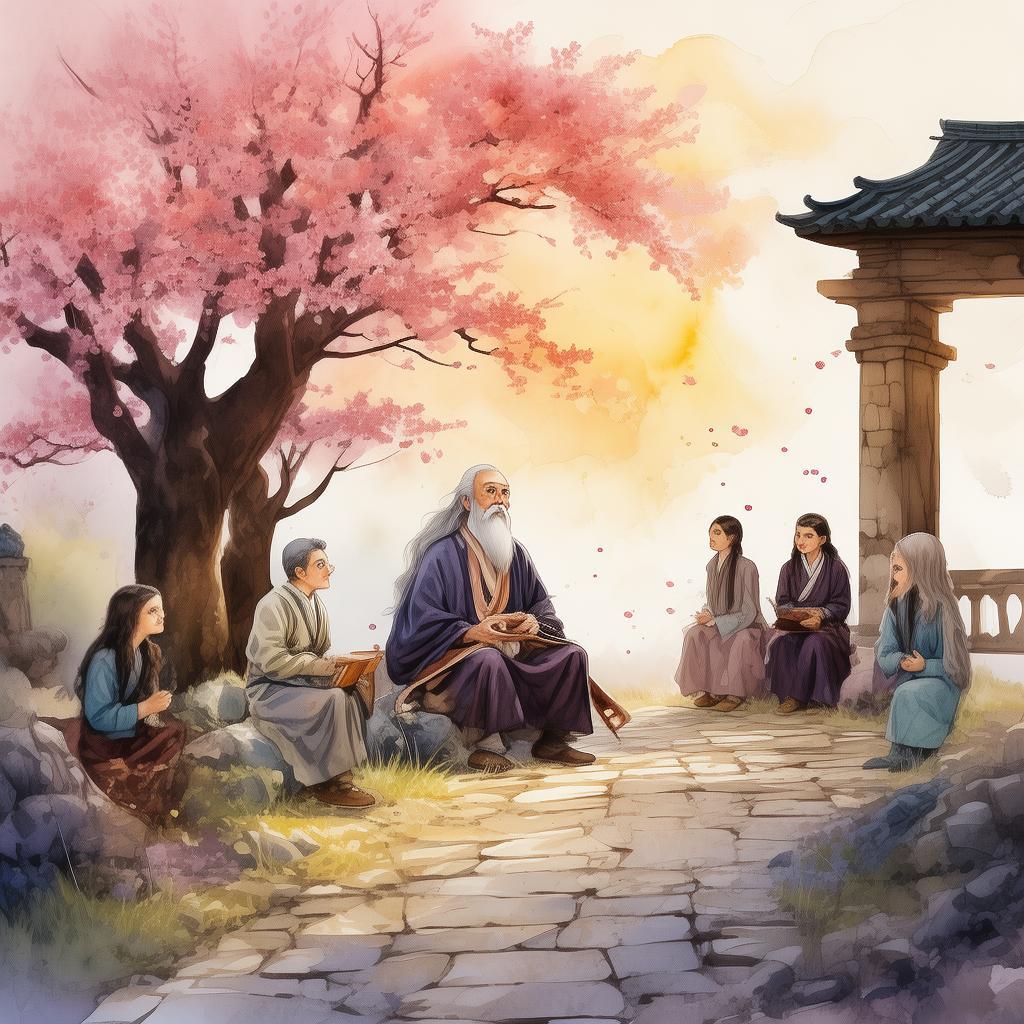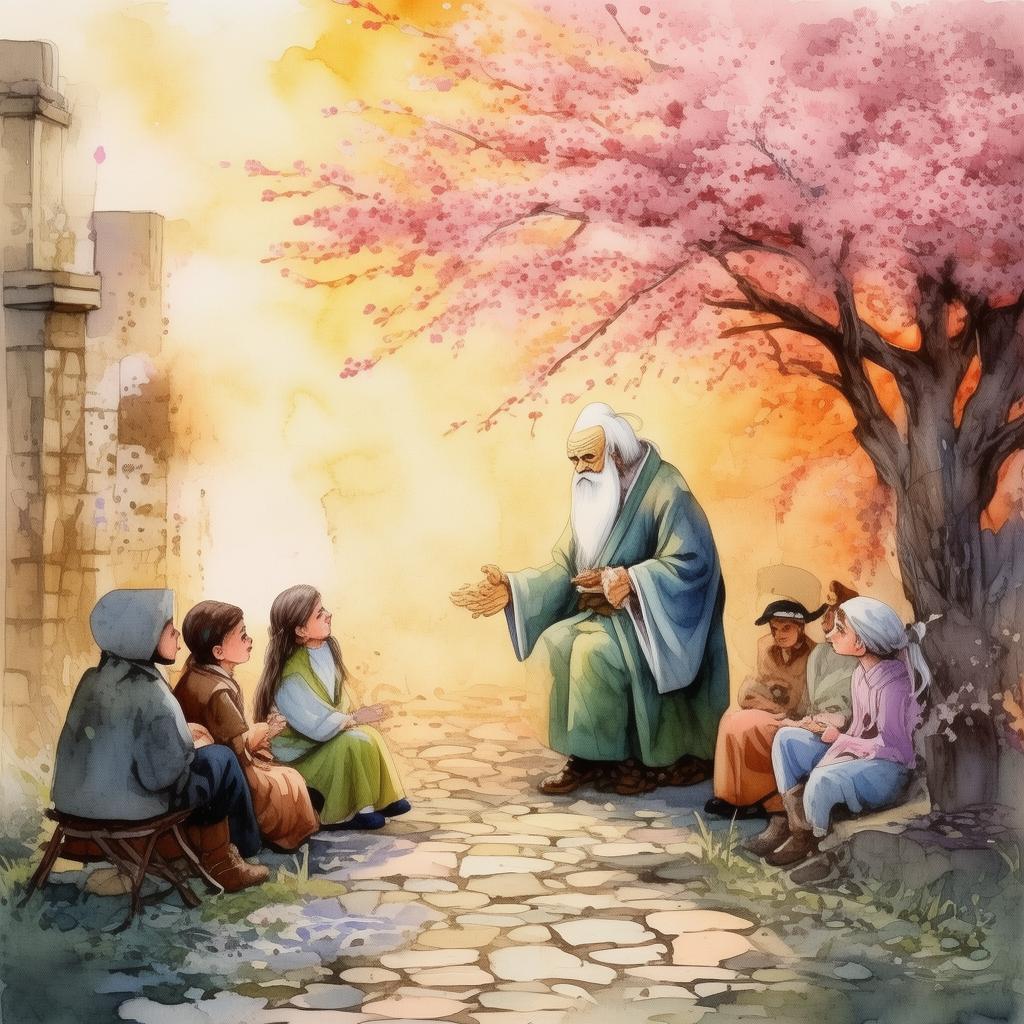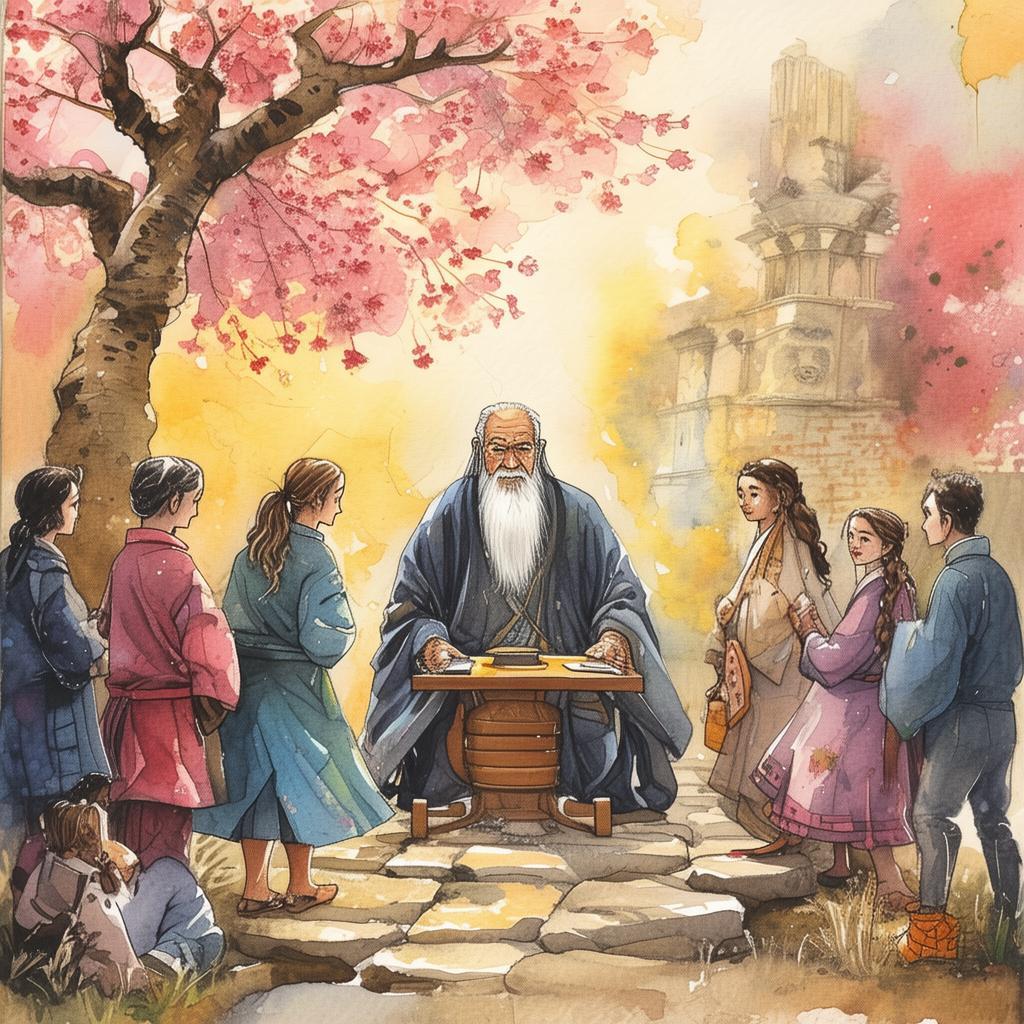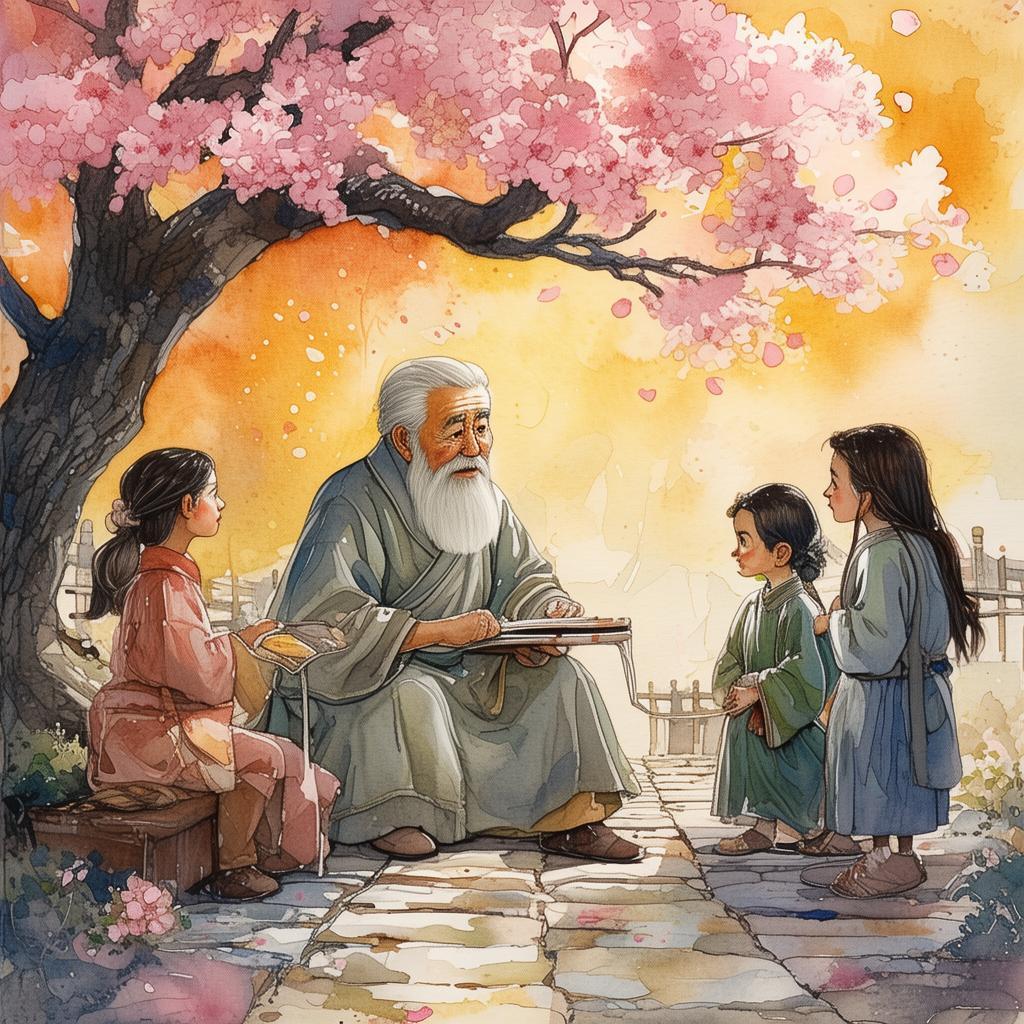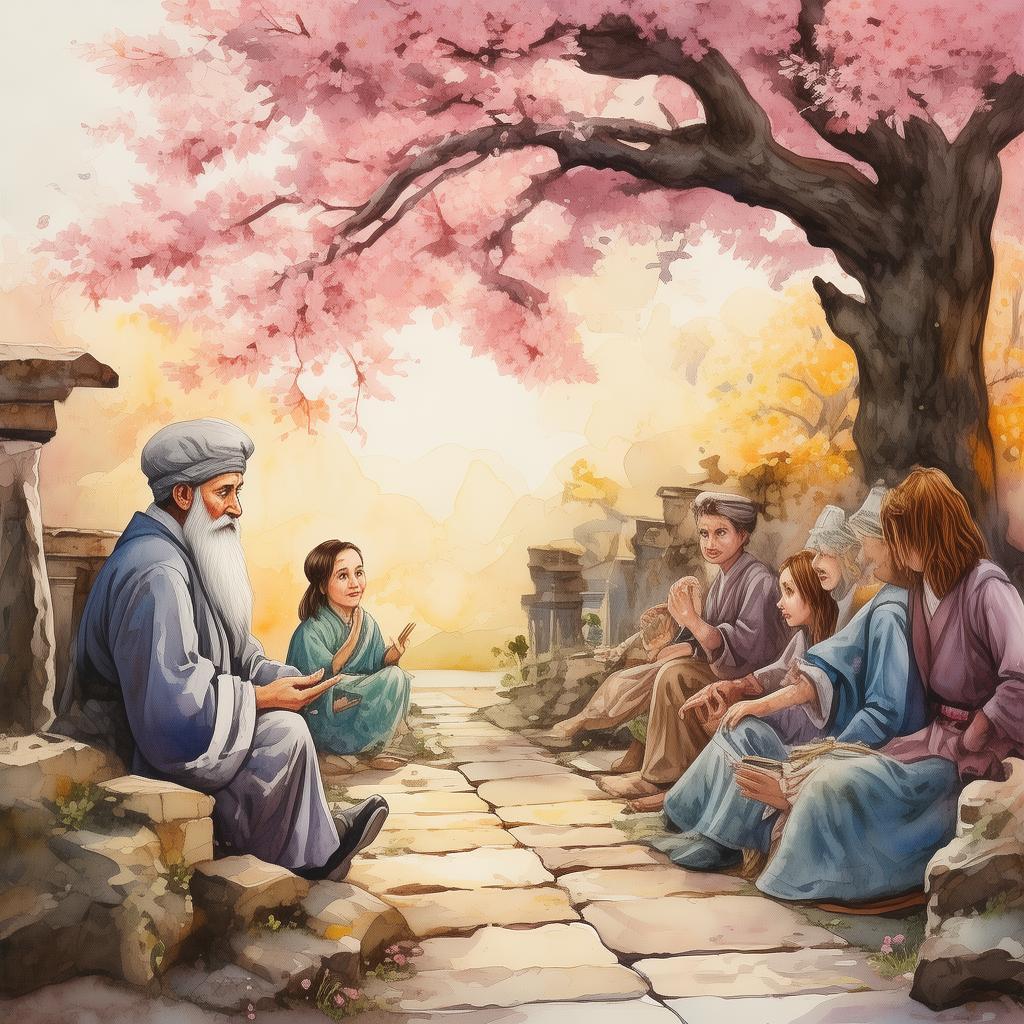The Whispers of the Golden Throne
In the grand palace of Chang'an, the capital of the Han Dynasty, the young heir, Liang Shang, stood before the Golden Throne, its surface gilded with the finest of gold and adorned with intricate carvings of celestial deities. The throne was a symbol of power, a beacon that drew the eyes and ambitions of all who sought to control the empire.
Liang Shang was no ordinary heir. Born into a family of scholars and strategists, he was known for his wisdom and foresight. His father, the current emperor, had chosen him to be his successor, entrusting him with the future of the Han Dynasty. Yet, as the empire teetered on the precipice of war, Liang Shang knew that the throne was not simply a seat of honor but a trap that could ensnare the unwary.
The court was a web of intrigue and deceit, and the whispers of the Golden Throne were no different. It was said that the throne held the secrets of the empire, the whispers of the ancestors who had sat upon it before. Some claimed that the throne itself could communicate with those who were pure of heart and loyal to the dynasty.
Liang Shang, however, was no stranger to the machinations of court. He had spent his youth studying the art of politics, the subtleties of diplomacy, and the delicate balance of power. He had learned to listen to the whispers of the throne, to discern between the voices of loyalty and the siren songs of betrayal.
One evening, as the moon cast its silvery light upon the palace, Liang Shang sat alone in the throne room. The whisper of the throne filled the air, and he listened intently. "Loyalty is a fragile thing," it said. "It is like a delicate tapestry, easily torn by the winds of ambition."
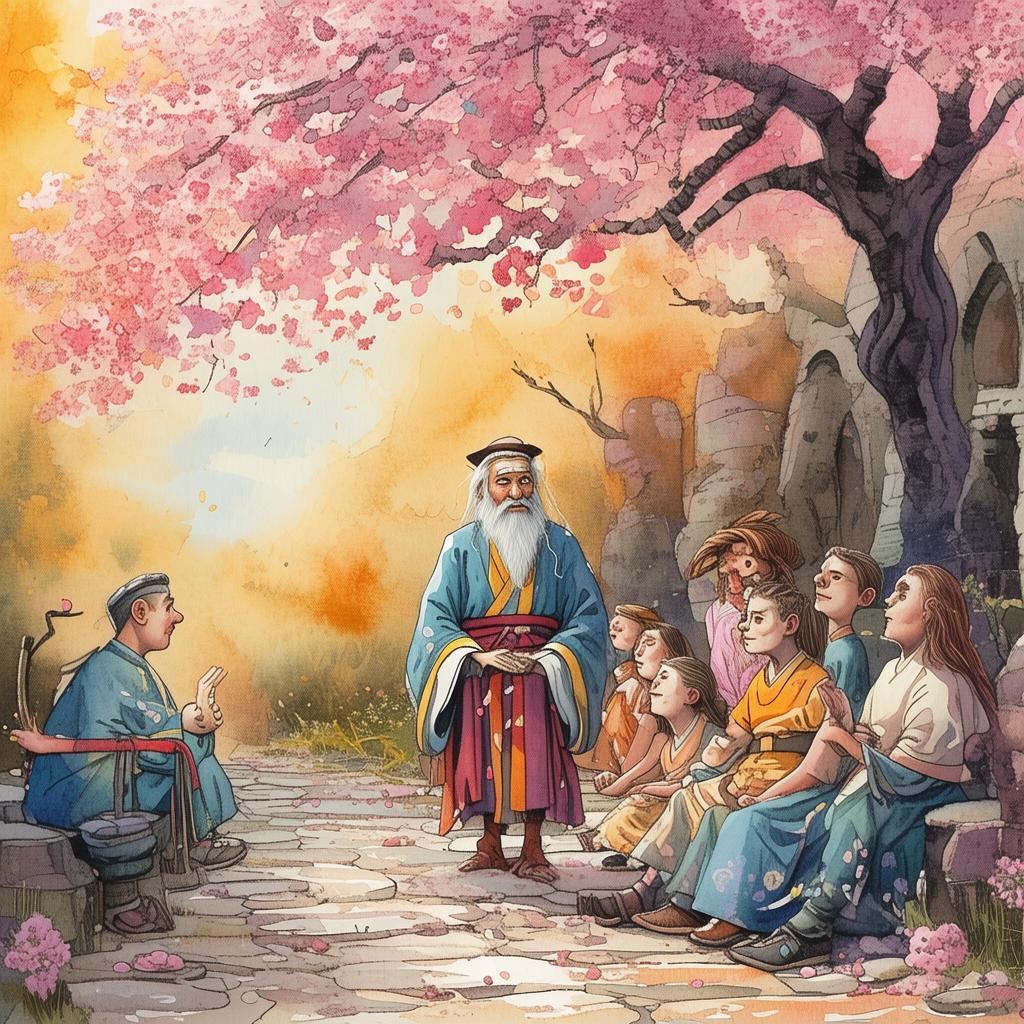
Liang Shang's eyes narrowed. He knew that the throne was speaking of the courtiers who surrounded him, those who sought to seize power for their own gain. He knew that he must tread carefully, for the smallest misstep could lead to his downfall.
The following morning, a message arrived from the outer reaches of the empire. It spoke of rebellion, of a distant vassal prince who had grown restless under the rule of the Han. The court was in an uproar, and many called for swift action to quell the rebellion.
Liang Shang, however, chose to listen to the whispers of the throne once more. "The rebellion is but a symptom," it whispered. "The true threat lies within the court. Beware those who seek to take the throne by any means necessary."
Determined to uncover the truth, Liang Shang embarked on a quest to uncover the traitors within his own ranks. He sought out the most seasoned spies, the cleverest strategists, and the most loyal of his guards. Together, they delved into the shadows of the court, uncovering secrets that would change the fate of the empire.
As they probed deeper, they discovered a plot that stretched from the highest echelons of the court to the very throne itself. A group of courtiers, led by a cunning advisor known as Wei Zhen, had conspired to overthrow the current emperor and install a puppet ruler who would serve their interests.
Liang Shang's heart raced as he realized the gravity of the situation. If Wei Zhen's plan succeeded, the empire would be thrown into chaos, and the Han Dynasty would crumble. He knew that he must act quickly and wisely to prevent this catastrophe.
With the help of his trusted allies, Liang Shang devised a plan to outmaneuver Wei Zhen. They would infiltrate the traitors' ranks, gather evidence of their treachery, and bring them to justice before they could act. It was a dangerous game, one that could cost Liang Shang his life.
As the night of the final confrontation drew near, Liang Shang stood before the Golden Throne, its whispers echoing in his mind. "Do not fear," the throne seemed to say. "Your heart is true, and your loyalty will see you through."
In the darkness of the throne room, a battle of wits and wills commenced. Liang Shang and his allies outsmarted Wei Zhen and his cohorts, exposing their treachery to the court. The emperor was informed, and a swift trial was convened to bring the traitors to justice.
The whispers of the throne had been right. Loyalty was indeed a fragile thing, but with courage and determination, Liang Shang had proven his true worth. The empire was saved, and the Han Dynasty continued to thrive under his rule.
In the end, Liang Shang realized that the true battle had been not just against the traitors, but against the whispers of the throne itself. It was a battle to prove his worth and to claim the throne not as a symbol of power, but as a responsibility to protect the empire he loved.
And so, the whispers of the throne continued to resonate through the halls of the palace, a reminder to all who sought power that true leadership lay not in the seat itself, but in the heart of the ruler.
✨ Original Statement ✨
All articles published on this website (including but not limited to text, images, videos, and other content) are original or authorized for reposting and are protected by relevant laws. Without the explicit written permission of this website, no individual or organization may copy, modify, repost, or use the content for commercial purposes.
If you need to quote or cooperate, please contact this site for authorization. We reserve the right to pursue legal responsibility for any unauthorized use.
Hereby declared.
